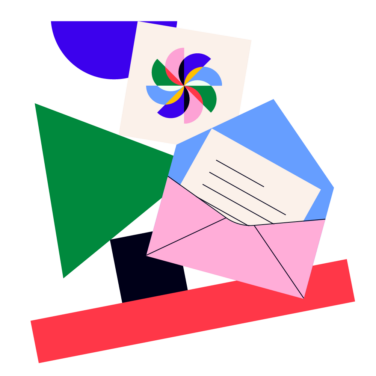Machine learning in marketing automation is already here—and it’s here to stay.
According to a report by MarketsandMarkets, the marketing automation industry is projected to grow from USD 6.4 billion in 2021 to USD 12.3 billion by 2026 (yes, almost double)—and that's very likely just the beginning.
Leveraging this powerful AI subset, businesses can elevate their marketing efforts, offering personalized experiences and boosting ROI and customer satisfaction.
In this article, we'll delve into practical strategies for integrating machine learning into your marketing automation workflow, navigating complexities, identifying the right automation tools, and maximizing benefits to stay ahead in the fast-paced marketing landscape.
What Is Marketing Automation?
Marketing automation refers to the technology that manages marketing processes and multifunctional campaigns across multiple channels automatically. From email and social media marketing campaigns to customer service chatbots, companies use marketing automation to standardize repetitive tasks, reducing human error and increasing efficiency and customer engagement.
How Machine Learning Works
Machine learning, a subset of artificial intelligence, refers to the use of algorithms and statistical models to enable systems to learn from and make decisions based on data without explicit programming. In a survey conducted by MIT Technology Review, 60% of organizations now use machine learning or deep learning as part of their business strategy.
When applied together, machine learning and marketing automation can create potent solutions that revolutionize how businesses interact with their customers and significantly enhance their marketing efforts.
Benefits of Marketing Automation in Machine Learning
1. Improved ROI
Machine learning can optimize marketing automation, leading to a significant improvement in return on investment (ROI). For instance, by using machine learning algorithms, businesses can predict customer behavior and trends, helping marketing teams to target their marketing efforts more efficiently and thus improve their ROI.
2. Streamlined sales process
Machine learning can streamline the sales process by automating repetitive and time-consuming tasks, such as data entry, lead scoring, and email marketing. With predictive analytics, machine learning can identify potential leads more accurately, making the sales funnel more efficient and improving conversion rates.
3. Personalized customer experiences
Machine learning can help businesses provide personalized customer experiences. By analyzing customer data, machine learning algorithms can predict individual consumer behavior and preferences. This enables businesses to tailor their marketing efforts to individual customers, creating a more personalized and engaging user experience and customer journey, optimizing content to offer specific product recommendations and customer support, and boosting loyalty and retention.
Challenges of Machine Learning in Marketing Automation
Machine learning brings powerful capabilities to marketing automation, but it also introduces several challenges that organizations need to address.
Here are some key challenges:
Machine learning systems are complex: The complexity of machine learning systems can pose significant challenges, particularly for those who lack expertise in data science. It's not just about integrating marketing software into your existing tech stack; it's about understanding the logic behind machine learning models and natural language processing and how they can be trained and optimized. In many cases, this might require hiring new talent or investing in training for existing employees.
Data collection poses risks: Machine learning models are only as good as the data they are trained on. Collecting high-quality, relevant data can be a significant challenge. Also, with the rise of regulations like the General Data Protection Regulation (GDPR) and the California Consumer Privacy Act (CCPA), marketers need to be cautious about how they collect and use customer data.
Data processing can be complicated: Even once the new data is collected, it needs to be processed and cleaned before it can be used. Data analysis often involves dealing with missing or inconsistent data, and determining what to do with outliers. This process can be time-consuming and complex.
Data security is paramount: With the increasing amount of customer data being used in machine learning models, data security becomes a significant concern. Businesses need to ensure that they have strong security measures in place to protect this data from potential breaches.
Difficulty in understanding results: Machine learning models can often be seen as a black box, making it difficult to understand why a particular prediction or decision was made. This lack of transparency can be problematic when trying to interpret results and make informed business decisions based on these metrics.
Becoming over-reliant on technology: While machine learning can streamline many marketing processes, there is a danger in becoming overly reliant on technology. It's important for human marketers to stay involved in the process to provide the creativity and strategic thinking that machines can't replicate.
Addressing these challenges requires a well-planned strategy, potentially including a mix of upskilling, hiring, investing in appropriate tools, and developing robust data management and security policies.
How To Use Marketing Automation In Machine Learning In 7 Steps
Harnessing machine learning in marketing automation can significantly optimize marketing efforts, streamlining processes and personalizing customer experiences.
But how do you practically implement this cutting-edge technology in your marketing strategy? Let's go through it step by step.
Step 1: Set clear objectives
Before diving into the technical aspects, define what you hope to achieve with machine learning in your marketing automation. This could range from improving email marketing and content marketing performance, enhancing your reach to target audiences via customer segmentation and demographics, building customer profiles, to predicting customer behavior.
Step 2: Collect and prepare your data
Machine learning relies heavily on big data. Collect relevant data from different sources like CRM, social media, customer service, etc. Use tools like HubSpot or Salesforce for CRM data, Google Analytics for web data, and Sprout Social for social media data. Once the data is collected, it needs to be cleaned and structured appropriately for machine learning.
Step 3: Choose the right machine learning algorithm
The type of machine learning algorithm you select depends on your objectives. For instance, you might use clustering algorithms for customer segmentation (e.g., K-Means), regression algorithms to predict customer lifetime value (e.g., Linear Regression), or classification algorithms for churn prediction (e.g., Logistic Regression).
Step 4: Develop or choose your machine learning model
Here, you can either build your custom machine learning models or leverage pre-built models offered by platforms like Google Cloud's AutoML, Amazon SageMaker, or IBM Watson. If you're developing your model, software libraries such as Scikit-learn, TensorFlow, and PyTorch can help.
Step 5: Train your model
You need to feed your model with a subset of your data, known as a training set. The model will learn from this data, detecting patterns and relationships that it can later apply to unseen data.
Step 6: Validate and test your model
Use a separate dataset, known as a validation set, to adjust your model's parameters for optimal performance. Then, test your model with a testing set to evaluate its performance. Tools like Google's TensorFlow provide robust ways to validate and test models.
Step 7: Deploy your model
Once you're satisfied with your model's performance, you can integrate it into your marketing automation software. Platforms like HubSpot, Marketo, and Mailchimp offer APIs that can help with this integration.
Step 8: Monitor and optimize your model
After deployment, continually monitor your AI marketing model's performance and make necessary adjustments. You might need to retrain your model periodically with fresh new data to ensure it remains effective as market conditions change.
Step 9: Analyze and act on the insights
Use the insights provided by your machine learning model to inform your marketing decisions. This might involve sending targeted emails, personalizing web content, or prioritizing high-value leads.
Implementing machine learning in marketing automation is not a one-size-fits-all process. Depending on your marketing goals and resources, your journey may differ. However, by following these fundamental steps, you can position your marketing efforts to reap the benefits of this advanced technology.
Leverage Marketing Automation Machine Learning For Growth
In an increasingly digital world, using machine learning in marketing automation offers many benefits, from improving ROI and forecasting to creating personalized customer experiences and generating new product ideas. However, businesses need to be aware of the challenges in using predictive models and equip themselves with the necessary knowledge and resources for decision-making.
Interested in getting the latest updates and use cases on marketing automation and machine learning? Subscribe to The CMO newsletter and join a community of CMOs, executives, and other marketing professionals dedicated to learning and evolving in the ever-changing world of digital marketing.


